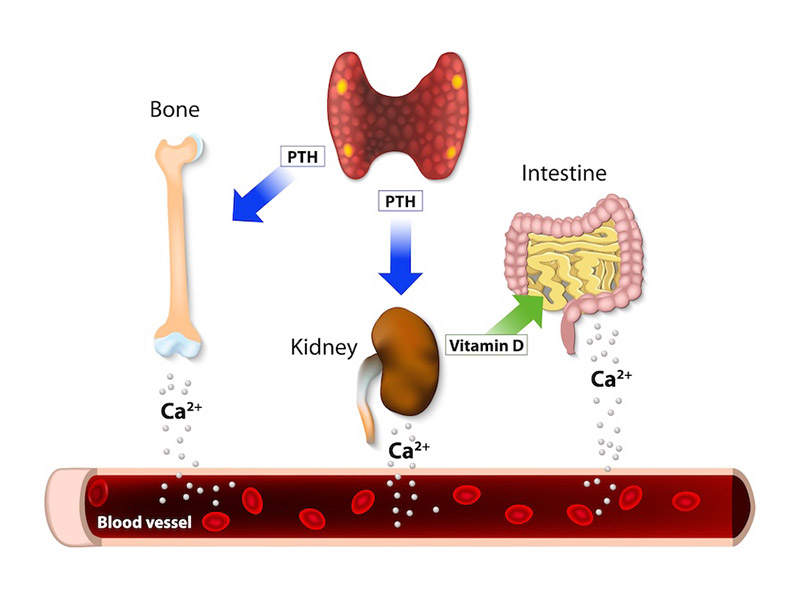
Parathyroid Surgery
Parathyroid Abnormalities
Abnormalities occur to parathyroid glands when one or more of the parathyroid glands enlarges and doesn’t receive the signal to stop making hormone. In this situation, the parathyroid gland continues to release parathyroid hormone despite normal levels of calcium in the blood. This is called primary hyperparathyroidism. In this condition, people may develop kidney stones, unexplained abdominal pains and cramps, constipation, accelerated bone loss resulting in osteopenia/osteoporosis, fatigue, or memory loss. Oftentimes, people will not have symptoms related to their elevated calcium levels. However, surgery is sometimes still required because it slows the rate of bone loss in at-risk patients.

Treatment for Parathyroid Disorders
This condition is treated with surgical resection of the parathyroid gland(s) making too much parathyroid hormone. Imaging studies called neck ultrasound and/or parathyroid scan are used to identify the abnormal gland. During surgery after the abnormal gland(s) is removed an intraoperative parathyroid hormone assay in the form of a blood test is used to determine cure. If hormone levels drop appropriately the operation is done. This procedure is considered an outpatient procedure where after a period of monitoring you are permitted to go home on the day of surgery.




